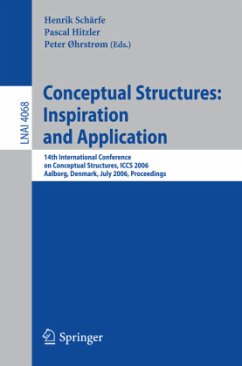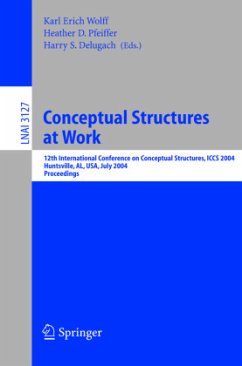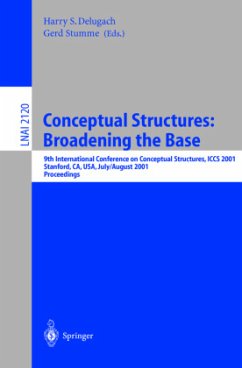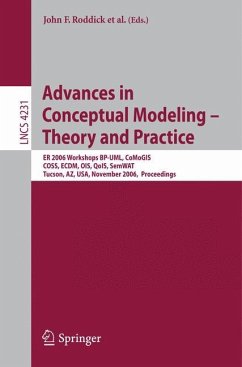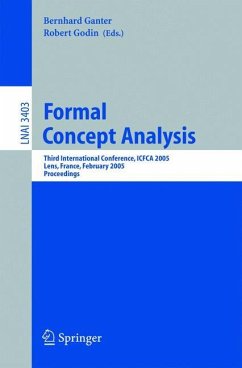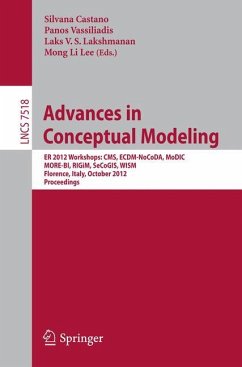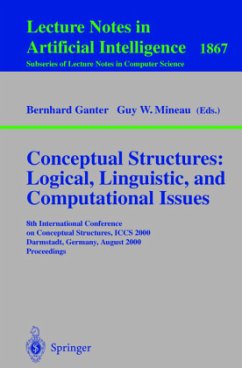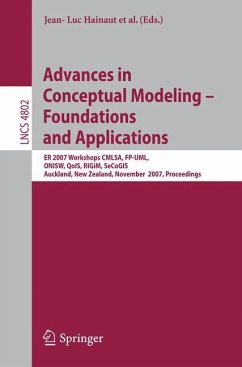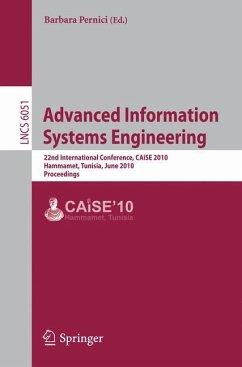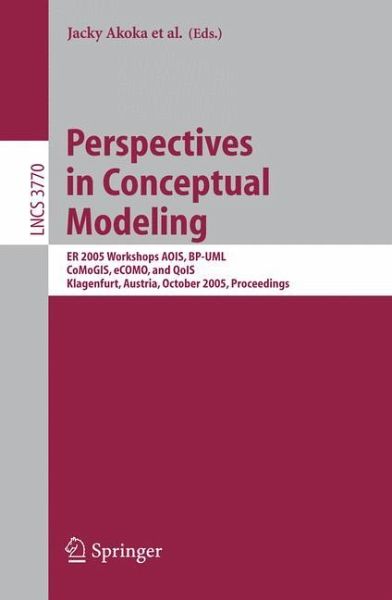
Perspectives in Conceptual Modeling
ER 2005 Workshop AOIS, BP-UML, CoMoGIS, eCOMO, and QoIS, Klagenfurt, Austria, October 24-28, 2005, Proceedings
Herausgegeben: Akoka, Jacky; Liddle, Stephen W.; Song, Il-Yeol; Bertolotto, Michela; Comyn-Wattiau, Isabelle; Heuvel, Willem-Jan v. d.; Kolp, Manuel; Kop, Christian; Mayr, Heinrich C.

PAYBACK Punkte
20 °P sammeln!
We are pleased to present the proceedings of the workshops held in conjunction with ER 2005, the 24th International Conference on Conceptual Modeling. The objective of these workshops was to extend the spectrum of the main conferencebygivingparticipantsanopportunitytopresentanddiscussemerging hot topics related to conceptual modeling and to add new perspectives to this key mechanism for understanding and representing organizations, including the new "virtual" e-environments and the information systems that support them. To meet this objective, we selected 5 workshops: - AOIS 2005: 7th Internat...
We are pleased to present the proceedings of the workshops held in conjunction with ER 2005, the 24th International Conference on Conceptual Modeling. The objective of these workshops was to extend the spectrum of the main conferencebygivingparticipantsanopportunitytopresentanddiscussemerging hot topics related to conceptual modeling and to add new perspectives to this key mechanism for understanding and representing organizations, including the new "virtual" e-environments and the information systems that support them. To meet this objective, we selected 5 workshops: - AOIS 2005: 7th International Bi-conference Workshop on Agent-Oriented Information Systems - BP-UML 2005: 1st International Workshop on Best Practices of UML - CoMoGIS 2005: 2nd International Workshop on Conceptual Modeling for Geographic Information Systems - eCOMO 2005: 6th International Workshop on Conceptual Modeling - proaches for E-business - QoIS 2005: 1st International Workshop on Quality of Information Systems These 5 workshops attracted 18, 27, 31, 9, and 17 papers, respectively. F- lowing the ER workshopphilosophy, program committees selected contributions on the basis of strong peer reviews in order to maintain a high standard for accepted papers. The committees accepted 8, 9, 12, 4, and 7 papers, for acc- tance ratesof 44%,33%,39%,44%, and 41%,respectively. In total, 40 workshop papers were selected out of 102 submissions with a weighted averageacceptance rate of 40%.



